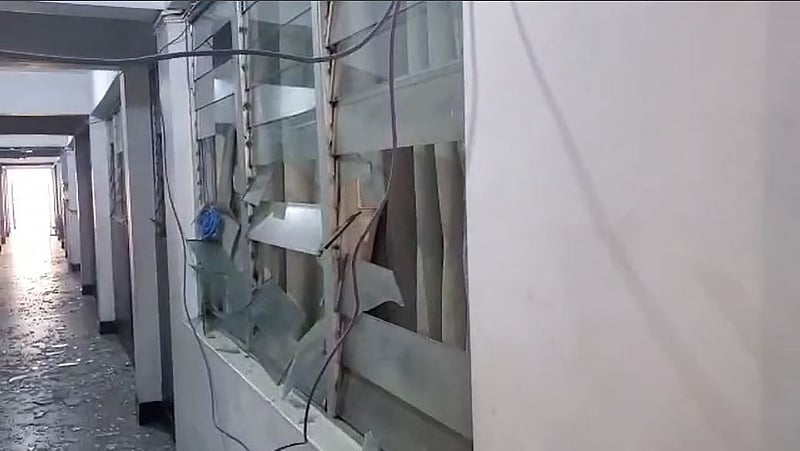The Ablekuma North Election Impasse: A Deep Dive into Ghana’s Electoral Dispute
The 2024 parliamentary elections in Ghana, while largely concluded, have left one constituency mired in controversy: Ablekuma North. This constituency, located in the Greater Accra Region, has become the focal point of a protracted electoral dispute, marred by delays, disagreements, and most recently, an alleged act of vandalism against the Electoral Commission’s collation center. The incident, involving a group of suspected thugs purportedly linked to the ruling National Democratic Congress (NDC), raises serious concerns about the integrity of the electoral process and the security of election officials.
The disputed election in Ablekuma North centers around the verification of results from three polling stations out of a total of 281. While the results from the vast majority of the polling stations have been verified and accepted by both the NDC and the New Patriotic Party (NPP), the discrepancies in these three polling stations have brought the entire collation process to a standstill. The contention surrounding these remaining polling stations underscores the fragility of democratic processes, particularly in closely contested elections where the margin of victory can be razor-thin.
The situation was further complicated by the resignation of the Returning Officer, Vincent Obeng, on January 8, 2025. Obeng cited the ongoing disputes and the pressure surrounding the verification process as the reason for his departure. His resignation, however, has injected another layer of complexity into an already tense situation. The Electoral Commission has expressed its concern over Obeng’s resignation and has indicated its intention to engage with him in hopes of persuading him to reconsider his decision. The absence of a Returning Officer adds another logistical hurdle to the already delayed process of finalizing the Ablekuma North results.
The heart of the dispute lies in the verification of pink sheets, the official documents used to record vote tallies at each polling station. The NDC has raised objections to the use of scanned copies of pink sheets for verification, alleging potential manipulation. They have called for a rerun of the elections in 62 polling stations where discrepancies were initially identified. While 59 of these polling stations have since been verified and the results accepted, the three remaining stations continue to be a source of contention. The NPP, on the other hand, maintains confidence in the existing process and anticipates that the final count will affirm their candidate’s victory.
The alleged attack on the Electoral Commission’s collation center further exacerbates the already tense atmosphere. Eyewitnesses report that over 40 individuals stormed the center, demanding that everyone vacate the premises before proceeding to vandalize the property. This incident raises serious concerns about the safety and security of electoral officials and the overall integrity of the electoral process. While the motive behind the attack remains unclear, it underscores the high stakes involved in the Ablekuma North election and the potential for political tensions to spill over into violence. The authorities are yet to issue an official statement regarding the incident or confirm whether any arrests have been made.
The Ablekuma North election saga epitomizes the challenges faced by emerging democracies in ensuring free, fair, and credible elections. The delays, disputes, and allegations of irregularities undermine public trust in the electoral process and create an environment of uncertainty and tension. The ongoing impasse underscores the need for robust mechanisms for dispute resolution, transparent procedures for vote counting and verification, and enhanced security measures to protect electoral officials and materials. The final outcome in Ablekuma North will not only determine the parliamentary representative for the constituency but will also serve as a litmus test for the strength and resilience of Ghana’s democratic institutions. The resolution of this dispute requires a commitment from all stakeholders to uphold the principles of transparency, accountability, and respect for the rule of law.


